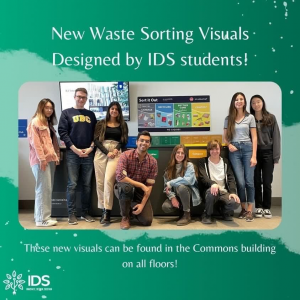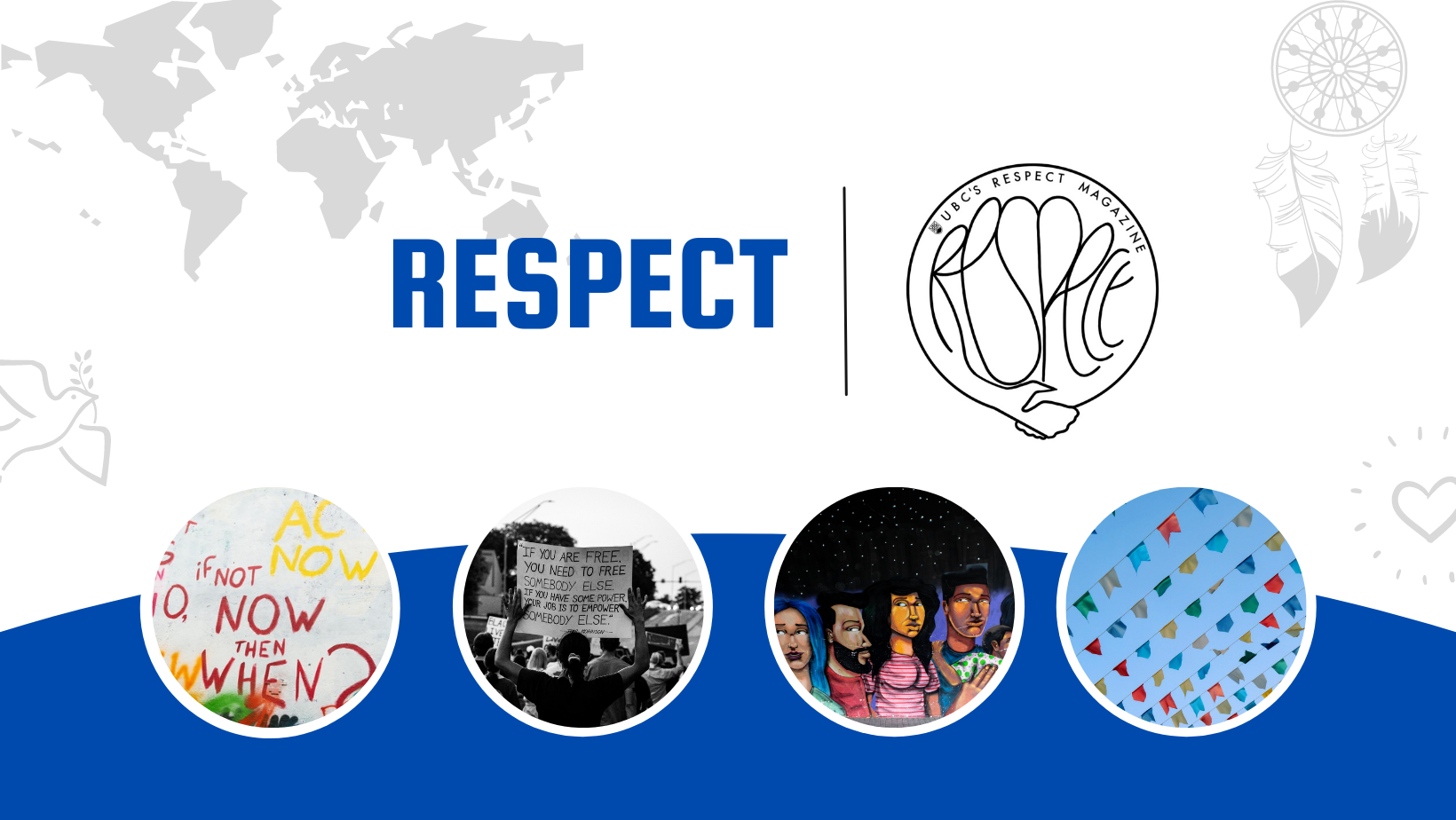RESPECT X Innovate, Design, Sustain by Nancy (Jiayi) Lu
Do you remember the mountain you climbed as a kid, or miss the beach where you used to spend time with family and friends? Have you ever experienced the serenity of nature or felt the indescribable pull of a special place that fills you with awe and wonder? As we journey through life, we often leave behind the places we once knew and venture forth to explore new horizons. As we live in different lands, we are influenced by the places, surroundings, and nature. All the associations and learning from various places shape our unique souls. Our diversity is making an impact on our lands, but how can we make the place we are living in better and even more powerful?
As Victoria is very progressive with its recycling program, and since the culture in Victoria is to embrace the importance of recycling, it has been deeply ingrained in me since I was young. For that reason, I was disappointed by the state of the recycling program at UBC, especially the lack of a focus on composting. If UBC Okanagan promotes recycling by rolling out beautiful new signs and providing plenty of compost bins, this would in my mind contribute to the power of place by showing that UBCO is a place that respects and protects the environment.
— David Ollech
I recently captured the voices from the campus waste initiative (CWI) team, a student group within the Innovation, Design, Sustain club, which aims to “transform UBCO into the campus of tomorrow through sustainable innovation.” A couple of students interpreted ‘power of place’ in regards to recycling policies.
Campus Waste Initiatives team, a group of eight undergraduate students, is one of the only teams on campus that aims to improve the sorting of waste items on campus. In order to reduce the contamination of recyclable and compostable items, this group made an effort to redesign the waste guiding posters to deliver an easy-to-understand guideline for students to sort waste on campus. It’s my pleasure to gain an insight into recycling policy on campus by talking to them.

The phrase ‘power of place’ could contain different meanings for everyone, let’s explore how individuals interpret it and how they not only are influenced by places but also contributing to new places?
Ryan Smith, a member of the Campus Waste Initiatives (CWI) team, is a second-year undergraduate majoring in ecology and evolutionary biology. He expressed: ” ‘power of place’ seems like how your environment shapes who you are and what we can do to shape that to better protect and care for our natural environment.”
“The perception of recycling policy in Portland Oregon Northwest Oregon shifted as I was growing up from putting whatever you can in the recycling to more focusing on contamination and trying to put the best things in the recycling although as usual laws are far behind that.” His recycling experience in his hometown made him environmentally conscious. When Ryan first came to UBCO, he found that the recycling policy was very different, and he heard about the term ‘returnable’ for the first time. He turned his learning experience into real-world practice by suggesting changing the term ‘returnable’ to ‘cans and bottles’ on the waste sorting guideline posters to make it clearer to those who were confused.”
Lakshay Karnwal studies computer science at UBCO, who is also the lead of CWI. “ ‘Power of place’ means the symbiotic relationship of trust, empathy, and growth within a community/place which makes a person unique from the residents around the world,” he further elaborated.
In his hometown of Mumbai, “waste sorting at the household level is not common compared to the standards in North America. Universities in India, as far as I know, do not have stringent recycling policies. Segregating waste into recyclable and non-recyclable is the only sorting you can observe, which is not common in the first place. In fact, one of the key issues for my city is the lack of garbage bins around busy places. Due to these differences, a student coming from my city might struggle to segregate waste on campus as it’s not common for us to do so.” However, he has learned and practiced the new recycling policies in his new place, and by engaging in the new waste sorting guideline design, he aims to “work on making campus segregation more effortless and effective” for people from all different places.
David Ollech is studying management at UBCO, he is also the co-lead of CWI. He described ‘power of place’ as “The positive effect one’s surroundings can have on their mood and attitude, from the way places are designed, lit, decorated, and maintained.”
David elucidated the difference in recycling policies of his hometown and campus, “ The compost bins are green. At UBC, they’re yellow. In Victoria, we do not have to sort our bottles and cans into a separate bin. In Victoria, bottles, jars, and plastics are separated out, whereas at UBC they go into a mixed recycling that includes paper. Lastly, in Victoria we are expected to wash our plastics before putting them in the bin. At UBC, students aren’t expected to wash plastic and are encouraged to throw dirty plastic into the garbage.” He became aware of the contrasting recycling policies between the two places that held a significant place in his memories and associations. Taking this into consideration, he aimed to enhance the waste sorting guidelines for students on campus, making them more transparent and straightforward.
Proper recycling management has the power to significantly reduce the amount of waste being sent to landfills and incinerators, and ultimately mitigate the environmental damage caused by waste disposal. As we settle into a new place, we often appreciate the pristine cleanliness and natural beauty of our surroundings. But have we ever considered the small yet impactful changes we can make through recycling? By bringing our diverse perspectives and knowledge to a new place, we have the potential to improve or worsen its condition. However, through continuous learning and respect for our environment, we can work towards making it a better place for all. It’s up to us to take responsibility and make a positive impact on the world around us.
About the Contributor
The interview was conducted by Nancy (Jiayi) Lu who is an undergraduate student majoring in Psychology in the Faculty of Science at UBC Okanagan. The interview features the perspectives of David Ollech, Ryan Smith, and Lakshay Karnwal, members of the Innovate, Design, Sustain club at UBC Okanagan.
Image provided by Nancy (Jiayi) Lu
